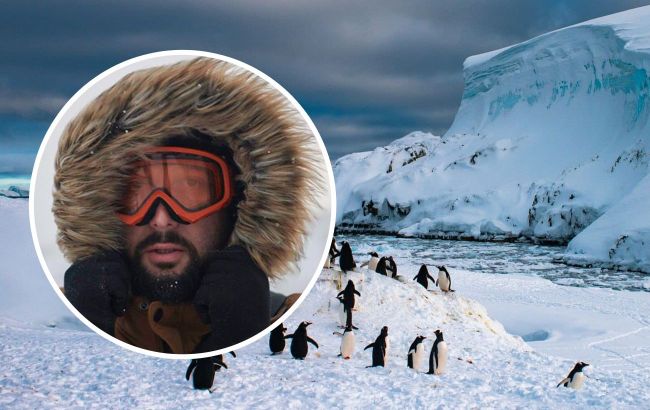Preserving Antarctica: Restrictions and rules in world of penguins and glaciers
 What restrictions apply to people in Antarctica (photo: Collage, RBC-Ukraine)
What restrictions apply to people in Antarctica (photo: Collage, RBC-Ukraine)
Before celebrating Antarctic Day on December 1, RBC-Ukraine shares the rules and regulations for people in the world of penguins and glaciers, according to the National Antarctic Scientific Center's Facebook page.
What's known about Antarctica
Antarctica is the largest untouched sanctuary of wildlife by human hands.
This is primarily due to the complexity of climatic conditions (the icy continent was discovered in 1820), followed by political agreements regarding non-appropriation and subsequent non-utilization of the territory.
During the period between the onset of Antarctic exploration (involving the continent, surrounding islands, and the Southern Ocean) and the establishment of clear ecological standards, humans inflicted immense harm on this region.
This primarily refers to the ruthless extermination of animals—whales, seals, and penguins. Some populations suffered irreversible losses that have yet to fully recover.
While limitations on hunting certain animal species began in the 1970s, stringent prohibitions regarding interference in Antarctica's wildlife were established in 1991 in accordance with the Madrid Protocol.
The current restrictions
Experts note that stringent restrictions apply in Antarctica, applicable to everyone—polar researchers working there as well as tourists.
Tourism is permitted in Antarctica. However, military activity, nuclear explosions, and the possession of radioactive materials are prohibited.
It's crucial to minimize human intervention and impact on the local wildlife.
Polar explorers emphasize that transport vehicles should not disturb the lives of wild animals in the sea or on land.
Additionally, it's forbidden to feed, touch, or handle birds (specifically penguins) or seals. Furthermore, approaching animals for photography is prohibited if it affects their behavior.
Importantly, importing non-native flora and fauna, such as spores and plant seeds, onto the continent is prohibited.
The use of firearms, explosive substances, or the creation of loud sounds that may scare animals is strictly forbidden.
Permitted activities on the continent:
- Animal and plant products for consumption are allowed, but they must be strictly controlled and properly disposed of.
- With permission, indoor plants can be brought in, as well as laboratory plants, animals, and microorganisms.
- Collecting and transporting animal and plant samples are permitted exclusively for scientific purposes and with authorization.
"The established rules in Antarctica serve as a model for respecting nature. We must value our planet and respect all its inhabitants. Our future depends on this," as stated in the message.

